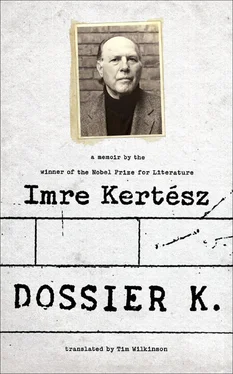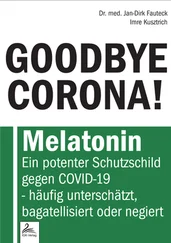As a Judeo-German conflict that may be regarded as “done and dusted” with the payment of reparations and the erecting of memorials?
In other words, as a purely political issue, although that is not the point. It’s precisely what differentiates the Holocaust (let’s stay with that generally accepted label) from all other genocides. I see only one serious problem that needs to be settled, which is whether the twentieth-century experience of concentration camps is a matter of universal or marginal relevance.
We know that you think it is universal, but are you aware that in so doing you are — how should I put it? — stepping out of one cultural area and entering another?
Could you be a bit clearer what you mean?
Universality is a concept from Catholicism .
Oh, I see. A priest once said to me that God has no religion.
You say in Someone Else that there is no way of getting to grips with Auschwitz unless we take God as our starting point. Let me quote back to you: “If Auschwitz was to no avail, then God has failed; and if God has been made to fail, then we shall never understand Auschwitz.”
Yes, that’s the point. Now we shall never understand.
Because God has been made to fail?
Yes, because the world order has not changed even after Auschwitz.
Is that what Liquidation, your most recent novel, is about?
Yes. And if in Fatelessness —and my other books, too, I hope — I succeeded in turning Auschwitz into a universal human experience, then I must equally report on that failure as a universal human experience. A few critics in Germany did grasp precisely that.
What about here, in Hungary?
Let’s just leave it. For Hungary the view on my novel is blocked by the towers of Stockholm. I don’t wish to say any more than that.
I find that hard to believe, but we’ll come back to this later. What is of interest to me right now is how you managed to shake off the factory .
Through an act of humiliating solidarity of the kind that sometimes appears almost as a memento at critical turning points of my life.
Why do you say “humiliating” ?
Because they are unmerited when they occur to me, and they leave me defenceless. I am always embarrassed when the world order is infringed.
What would you call the world order?
The banal spell of evil.
This is beginning to interest me. Let me repeat my question: How did you manage to get out of the factory?
One afternoon, the foreman said that a journalist was waiting for me outside, in the changing room. To be brief, it was Nándi Ordas, who was working on what was called the “Manufacturing” column for my old newspaper (which had long ceased to be called Világosság but was named Evening Budapest instead, on the lines of some Soviet model). He was a young chap from the provinces, twenty-five or thirty years old, burly and fresh-faced, though he was fonder of a spritzer or two more than was good for him. We had hit it off from the start but more from a distance, simply not having enough time to become real friends. As “Manufacturing” reporter he had access to any factory and even some of the ministries. “I’ve wangled this job for you,” he said in elation as I entered the changing room.
Had you asked him to sniff around?
Not at all! I wasn’t even sure whether he had noticed I had been kicked out. I hadn’t had time even to say farewell. “Just go along to the Ministry for the Metallurgical and Engineering Industries and ask to see the head of the press office, Márton Fazekas. He already knows everything.” That’s how it was. Next morning I was seen by a gentleman (or rather “Comrade”) of around fifty, wiry, on the short side, a very soft-spoken chap wearing a snazzy sports jacket, a hint of melancholy on his well-groomed moustachioed features …
A flower adorning the buttonhole of his jacket …
How do you know that?
I’ve read Fiasco.
Oh yes, right you are. But the figure you meet there is not the real Márton Fazekas but a semistylized, I might almost say mythical mutant of him. True, the real Marci Fazekas also wrote poetry that, every now and again, he would read to me in confidence, under a huge map of Korea that hung on his office wall.
What has that to do with the poems?
What do you mean?
The map of Korea …
In those days there was a map of Korea pinned up in every office, workroom, and workshop in the country, everywhere. There would be pins with red flags to track the victorious advance of the North Korean forces: the pins would have to be reset every day in accordance with the military situation, accompanied wherever possible with a picture or article cut out of one paper or another that showed the South Korean army in full retreat and/or General MacArthur and his threats to launch an atomic bomb attack.
Yes, of course, the Korean War .
You weren’t even born when that was in progress. To be brief, we lived in an intoxicating succession of unbroken Korean victories until, all of a sudden, with the invasion and battle of Inchon, the maps of Korea were removed from the walls overnight. We then started to send missives to the American president (whether it was Harry Truman or Eisenhower, I don’t rightly recall). “Dear Mr. President,” the letters proclaimed, “We, employees of the Press Office of the Ministry for the Metallurgical and Engineering Industries, demand the immediate termination of American involvement,” and so on, with the letters all signing off “Hands off Korea!”
Madness!
Yet there was method in it, as Hamlet says.
Which prompts me to note that we are flitting about fairly erratically. So, Márton Fazekas took you on as a colleague at the ministry. When was that exactly?
In the early spring of 1951.
What were your duties, strictly speaking?
If only I had known … the biggest trouble, though, was that I couldn’t care. In principle, I should have been putting together pieces along the lines of a newspaper article, but I had already been kicked out of the newspaper because I was incapable of writing material like that.
Yet all the same, Fazekas didn’t kick you out .
His bad luck was that he had taken a liking to me. He soon realized, however, that I was only using the job as a cover against the hostile world outside, but he looked on me as a sort of “young talent” who needed to be supported.
Did you mention your literary ambitions to him?
It could be … At the time I, too, was giving the co-authorship mode of existence a trial. You’re no doubt familiar with Iván Mándy’s scintillating book, Lecturers and Co-authors .
You bet! Did you use to go to his regular haunt, the “Darling” café?
No, I used to frequent the espressos along Andrássy … oops! Stalin Avenue, the former “Broadway” of Budapest. You know, ten or twenty years ago I was able to spout one anecdote after another about that period, which the now legendary Pál Királyhegyi probably got nearest to nailing: “One of these days, I’m going to write the story of my life under the title My Happy Days of Being Bored to Tears by Terror,” as he was in the habit of saying. The pristine flavour of those ridiculous and yet horrific times has been lost.
Fortunately, you managed to retrieve some of that in the extraordinary menagerie of your novel Fiasco. But let’s get back to Fazekas …
In point of fact, Fazekas was a very civil fellow; he mildly chided me on a few occasions, but in his own mind he rationalized what was, at root, a paternal sense of responsibility towards me which, in some way or other, involved literature and an unspoken Jewish solidarity.
Читать дальше












